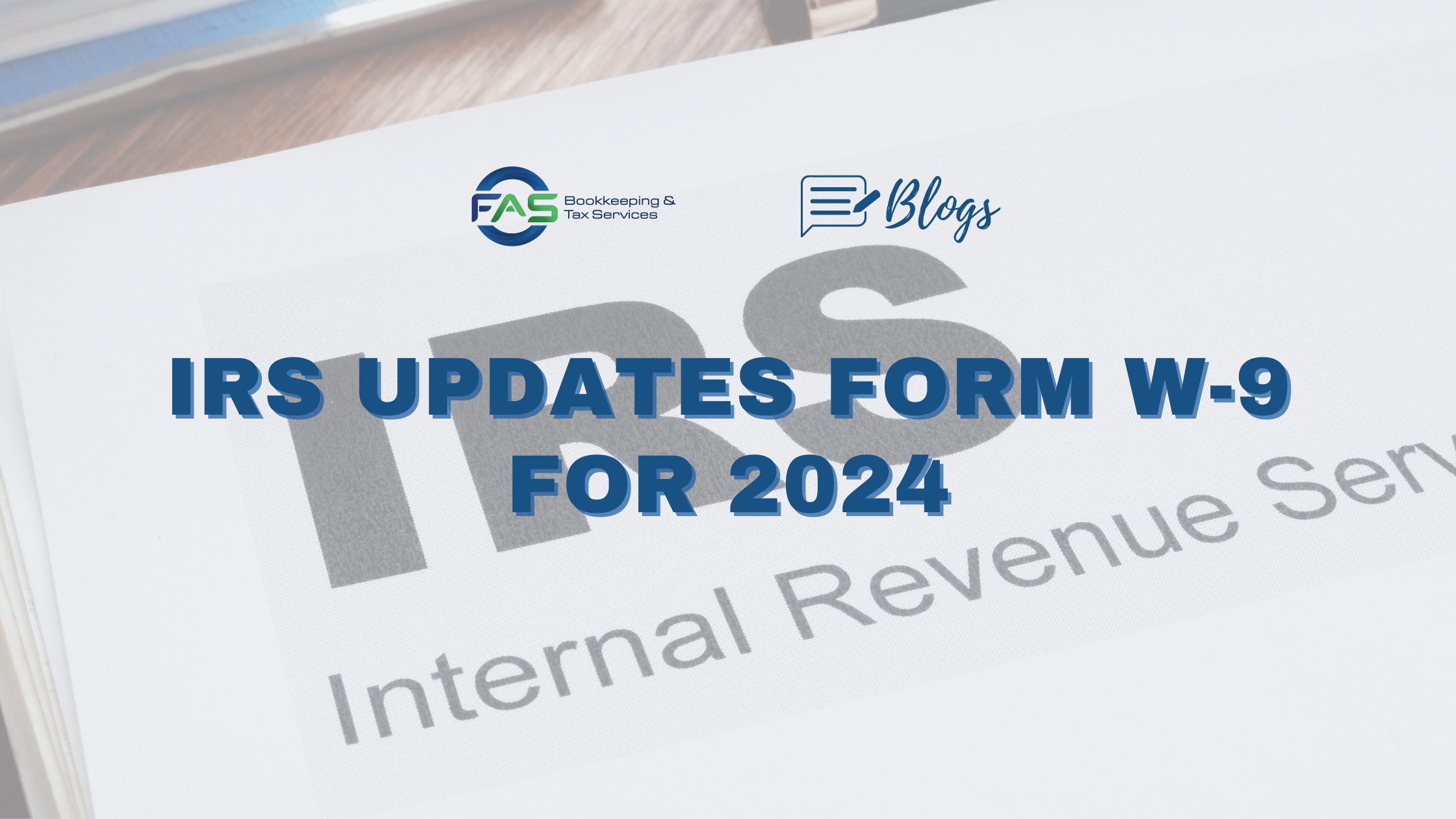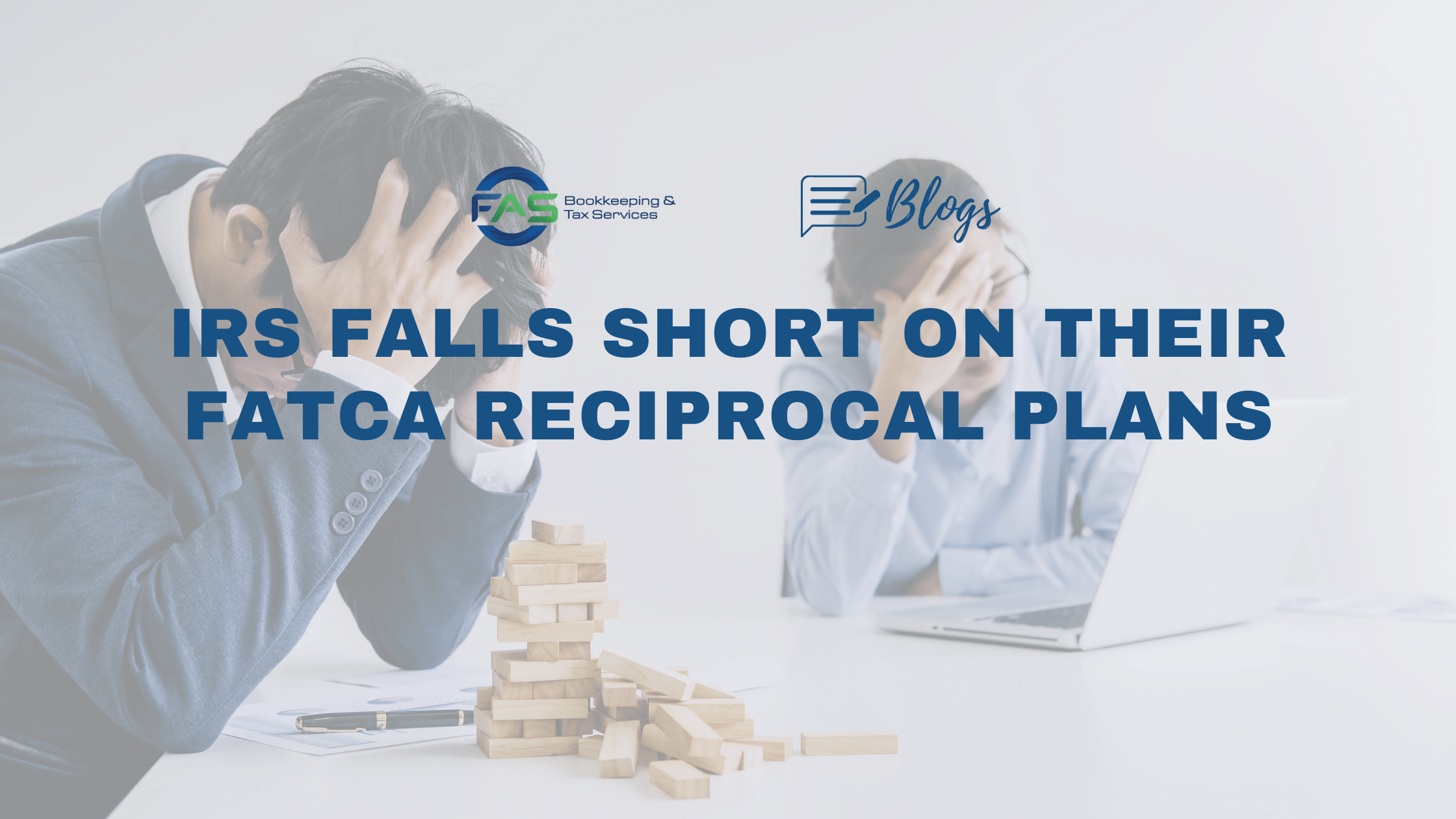IRS Falls short on their FATCA Reciprocal Plans
If you’re reading this, chances are you’re an American. And congratulations: that means you’ve worked within a citizenship-based taxation system your whole life. That’s right! US Citizens and Green Card Holders are required by law to report and disclose their worldwide income to the IRS by filing their federal tax returns yearly.
In the past, this has resulted in American expats being caught up in tax evasion cases. But the impact of this has only been truly experienced by Americans living in the past few decades. In 2010, the Foreign Account Tax Compliance was introduced to battle tax evasion and instigate voluntary tax compliance with the US tax laws. With the introduction of FATCA, financial institutions based abroad and investment firms are obligated to report the account balances and contact information of their American account holders straight to the IRS.
How does the IRS enforce this if the foreign financial institution is miles away? Simple. Whenever foreign financial institutions don’t comply, the US will impose withholdings when the foreign financial institutions decide to trade in US financial markets. However, some foreign financial institutions think that FATCA reporting is too much work with not enough upside for them that they sometimes decline, freeze, or close accounts that are under US citizens, citing that it’s too much of a liability.
 FATCA reciprocal reporting – A two-way street
FATCA reciprocal reporting – A two-way street
FATCA was always intended as a “you scratch my back, I’ll scratch yours” deal. Foreign governments would give the US financial information on their citizens and corporations, and in return, the US would do the same for them.
But it didn’t turn out that way. Foreign countries have been providing the US with this information since 2014, but the US never held up its end of the bargain.
In a recent interview, the IRS Commissioner said that while he believes in “transparency where transparency is appropriate,” he admitted priorities were a difficult decision to make.
He explained further by saying, “We are forced to make difficult decisions regarding priorities, the types of enforcement actions we employ, and the service we offer.” Scarce resources and friction that’s coming from the American Banking community make reciprocal reporting to be a far-fetched dream, especially when the American Banking community already fought against the proposal of a homeland version of FATCA.
America’s inability to give back what they are getting may create unintended consequences in the near future. Other countries worry that hidden wealth may be placed in the US without their home countries’ tax authority even knowing.
About 100 countries (the US not included) have banded together to create their own solution in solving this problem. They’ve introduced the Common Reporting Standards (CRS), which is similar to FATCA to fend off tax evasion and to protect the integrity of their taxation systems by sharing vital taxpayers’ information across borders.
The IRS trying their best
In 2020, $573 million dollars have been spent by the IRS when it comes to FATCA enforcement. Before FATCA was introduced in 2010, the IRS had no way of knowing if US citizens and Green card holders have income generated abroad.
The latest TIGTA report hints that the visibility of American citizens’ foreign accounts is still low. The IRS Commissioner confirmed this in a committee hearing when he was saying:
“Congress enacted FATCA in 2010, but we have yet to receive any significant funding appropriation for its implementation. This situation is compounded by the fact that when we do detect potential non-compliance or fraudulent behavior through manually generated FATCA reports, we seldom have sufficient funding to pursue the information and ensure proper compliance.”
When FATCA was being conceptualized by Congress, thinking that it could generate about $8.7 billion in untapped revenue over the next 10 years. However, the IRS is a few billion short of the expected collection. For the last 12 years, the IRS was only able to collect less than $14 million.
 Still got time to be compliant
Still got time to be compliant
Did you feel that? That’s the pressure to make a change.
The IRS has already agreed to work on some of the key recommendations from TIGTA:
- “Establishing follow-up procedures and initiating action on error notices with the FFIs
- Continuing efforts to systemically match Form 8966 and Form 8938 to identify non-filers and underreporting related to U.S. holders of foreign accounts and to the FFIs
- Informing taxpayers how to obtain global intermediary identification numbers
- Strengthening overall compliance efforts directed toward improving the accuracy of reporting by Form 1042-S filers.”
Since the IRS still working on making FATCA more robust, American expats still have some time to keep up with their taxes that are past due!
Don’t have an idea on how you can catch up with your past-due filing? Send us a message today and our Enrolled Agent will help you in no time!
Get in touch with us!




 FATCA reciprocal reporting – A two-way street
FATCA reciprocal reporting – A two-way street Still got time to be compliant
Still got time to be compliant






